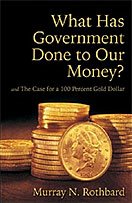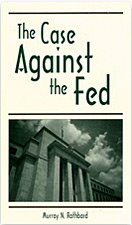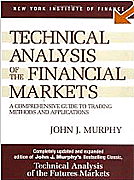Too big to fail? Germany rescues subprime lender
By Tim Bartz, Elisabeth Atzler,
Joanna Chung, Paul J. Davies,
and Stacy-Marie Ishmael
Financial Times, London
Wednesday, August 1, 2007
The German government has pulled together a rescue operation -- drawing in all three pillars of the country's banking system -- to shore up Europe's first major casualty of the subprime crisis.
The rescue of IKB, a specialist lender based in Dusseldorf, began on Sunday when Peer Steinbruck, the German finance minister, called leading banking executives to discuss a bailout. According to people who took part in the conference call, Jochen Sanio, head of Germany's financial regulator, is said to have warned of the worst banking crisis since 1931.
IKB announced a big fall in its earnings because of subprime exposure. The news sent its shares plunging and prompted KfW, the state-owned development bank, to step in with a pledge to guarantee obligations of more than E8 billion ($10.93 billion) -- more than five times IKB's stock market value.
The intervention suggested that the problems at IKB are much worse than thought. Mr SteinbrΓΌck phoned several banking executives, including Josef Ackermann, chief executive of Deutsche Bank, on Sunday to bring them on board.
Deutsche Bank, Commerzbank, and a number of publicly-owned Landesbanken and Sparkassen, as well as several other private banks, are taking a 30 per cent stake in a rescue fund worth E3.5 billion, FT Deutschland, the FT's sister paper has learned, with the rest being shouldered by KfW.
Axel Weber, Bundesbank president, said the rescue effort had effectively tackled IKB's problems. "The exposure of German banks in the US real estate market is manageable and limited overall," he said.
Details of the German intervention came as more bad news from hedge funds and the US housing sector battered investor confidence across the globe and dashed hopes of a quick end to the recent credit-led turmoil in global markets.
UK and European stock markets were hit, with the FTSE 100 finishing the day down 1.7 per cent at 6,250.6 after having been more than 2.5 per cent lower earlier in the day. The FTSE Eurofirst 300, meanwhile, ended 1.5 per cent lower at 1,526.26.
In London cable company Virgin Media announced it was delaying its auction in the hope that the credit market turbulence would settle in time to allow private equity suitors to finance bids which could reach $23 billion.
A day of extreme volatility saw US stock markets rocked after shares in a number of US homebuilders collapsed. At lunchtime the Dow Jones Industrial Average and S&P 500 were flat after a morning of sharp fluctuations.
Concerns about a lasting credit crunch are leading to expectations that central banks will have to step in to ease the sudden lack of liquidity.
Interest rate futures markets are now pricing in as a certainty that the US Federal Reserve will make at least one cut in rates by January.
Mounting fears of massive mark-to-market losses by hedge funds stemming from investments in the subprime and the so-called "Alt-A" mortgage sector -- in between prime and subprime -- are fuelling wild price swings across all markets.
* * *
Joanna Chung, Paul J. Davies,
and Stacy-Marie Ishmael
Financial Times, London
Wednesday, August 1, 2007
The German government has pulled together a rescue operation -- drawing in all three pillars of the country's banking system -- to shore up Europe's first major casualty of the subprime crisis.
The rescue of IKB, a specialist lender based in Dusseldorf, began on Sunday when Peer Steinbruck, the German finance minister, called leading banking executives to discuss a bailout. According to people who took part in the conference call, Jochen Sanio, head of Germany's financial regulator, is said to have warned of the worst banking crisis since 1931.
IKB announced a big fall in its earnings because of subprime exposure. The news sent its shares plunging and prompted KfW, the state-owned development bank, to step in with a pledge to guarantee obligations of more than E8 billion ($10.93 billion) -- more than five times IKB's stock market value.
The intervention suggested that the problems at IKB are much worse than thought. Mr SteinbrΓΌck phoned several banking executives, including Josef Ackermann, chief executive of Deutsche Bank, on Sunday to bring them on board.
Deutsche Bank, Commerzbank, and a number of publicly-owned Landesbanken and Sparkassen, as well as several other private banks, are taking a 30 per cent stake in a rescue fund worth E3.5 billion, FT Deutschland, the FT's sister paper has learned, with the rest being shouldered by KfW.
Axel Weber, Bundesbank president, said the rescue effort had effectively tackled IKB's problems. "The exposure of German banks in the US real estate market is manageable and limited overall," he said.
Details of the German intervention came as more bad news from hedge funds and the US housing sector battered investor confidence across the globe and dashed hopes of a quick end to the recent credit-led turmoil in global markets.
UK and European stock markets were hit, with the FTSE 100 finishing the day down 1.7 per cent at 6,250.6 after having been more than 2.5 per cent lower earlier in the day. The FTSE Eurofirst 300, meanwhile, ended 1.5 per cent lower at 1,526.26.
In London cable company Virgin Media announced it was delaying its auction in the hope that the credit market turbulence would settle in time to allow private equity suitors to finance bids which could reach $23 billion.
A day of extreme volatility saw US stock markets rocked after shares in a number of US homebuilders collapsed. At lunchtime the Dow Jones Industrial Average and S&P 500 were flat after a morning of sharp fluctuations.
Concerns about a lasting credit crunch are leading to expectations that central banks will have to step in to ease the sudden lack of liquidity.
Interest rate futures markets are now pricing in as a certainty that the US Federal Reserve will make at least one cut in rates by January.
Mounting fears of massive mark-to-market losses by hedge funds stemming from investments in the subprime and the so-called "Alt-A" mortgage sector -- in between prime and subprime -- are fuelling wild price swings across all markets.
* * *
Labels: financial crisis, markets















![[Most Recent Quotes from www.kitco.com] [Most Recent Quotes from www.kitco.com]](http://www.kitco.com/images/live/t24_au_en_usoz_6.gif)
![[Most Recent Quotes from www.kitco.com] [Most Recent Quotes from www.kitco.com]](http://www.kitco.com/images/live/au_go_0030_ny.gif)
![[Most Recent Quotes from www.kitco.com] [Most Recent Quotes from www.kitco.com]](http://www.kitco.com/images/live/au_go_0365_ny.gif)
![[Most Recent Quotes from www.kitco.com] [Most Recent Quotes from www.kitco.com]](http://kitconet.com/charts/metals/silver/t24_ag_en_usoz_4.gif)

















0 ΣΧΟΛΙΑ (COMMENTS):
Post a Comment
<< Home